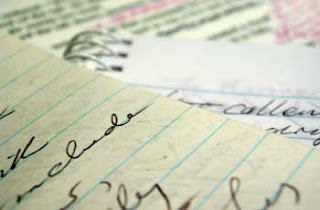We want our characters to be relatable in some form or another. The best way to make them relatable is to make them real and interesting. We can’t achieve this if we make all our characters the same mini versions of ourselves. Writers instead need to seize the opportunity to explore the rich variety of the human race. We can relate to more than one personality type. We can cheer for more than one style of goal.
So, what makes people/characters interesting, relatable, and real? Below is a brief list of things that might help when you are creating characters.
- No one reacts the same way in the same situations.
- Most of us learn from our mistakes but some of us learn faster than others.
- Everyone has a different history which will affect their responses.
- We all look different. Even identical twins have variations in their appearance.
- Not everyone is beautiful
- Not everyone is intelligent
- Even intelligent people have their blind spots
- Even beautiful people have their faults
- No one is perfectly good
- No one is 100% bad
- We all have differing opinions
- We all pursue different goals.
- We all have differing degrees of drive.
Can you think of other things that may make your characters more interesting, relatable and real?











